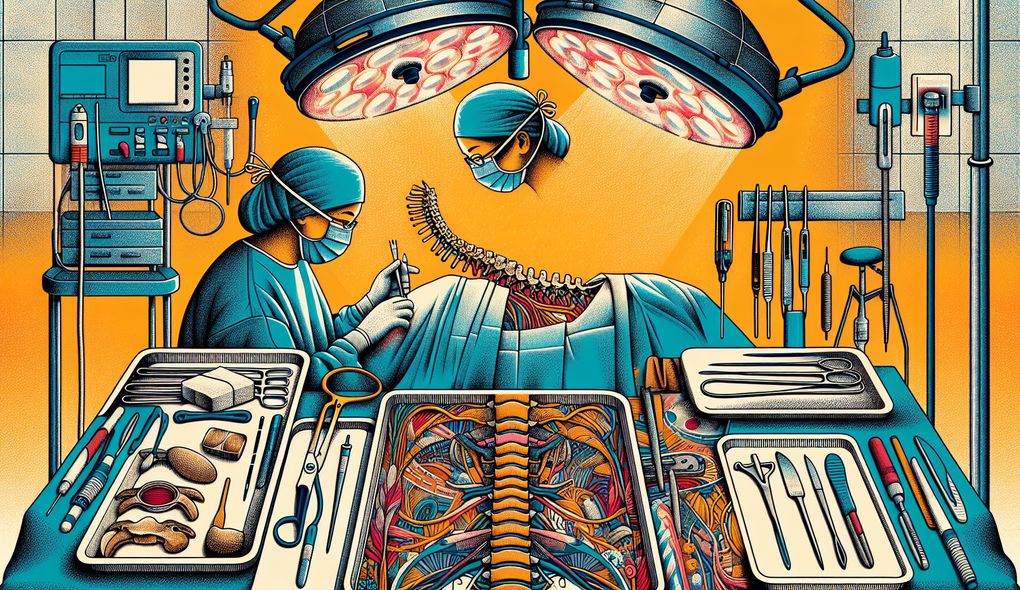How do you educate patients and their families on conditions, surgical procedures, and long-term management plans?
INTERMEDIATE LEVEL

Sample answer to the question:
As a Spine Surgeon, I believe in the importance of educating patients and their families on conditions, surgical procedures, and long-term management plans. I take the time to explain the diagnosis, using clear and simple language to ensure understanding. I also provide detailed information on surgical procedures, including the risks and benefits involved. When discussing long-term management plans, I emphasize the need for compliance with medications, physical therapy, and lifestyle modifications for optimal results. Additionally, I encourage open communication and address any concerns or questions that patients or their families may have.
Here is a more solid answer:
In my role as a Spine Surgeon, patient education is a crucial aspect of my practice. I strive to effectively communicate complex medical information to patients and their families in a way that they can understand. I take the time to explain the patient's condition, using visual aids and diagrams when necessary. When discussing surgical procedures, I ensure that the risks, benefits, and alternative options are thoroughly covered. To enhance long-term management, I develop personalized care plans that include medication schedules, physical therapy exercises, and lifestyle recommendations. I make it a priority to involve the patient's family in this process, as their support is crucial for successful recovery. Furthermore, I collaborate closely with other healthcare providers such as physiatrists, physical therapists, and pain management specialists to optimize patient outcomes and provide comprehensive care.
Why is this a more solid answer?
The solid answer expands on the basic answer by including specific details on using visual aids and diagrams, involving the patient's family, and collaborating with other healthcare providers. It demonstrates strong communication skills, patient education abilities, collaboration, and attention to detail. However, it can still benefit from more elaboration on the importance of continuous medical education.
An example of a exceptional answer:
As a dedicated Spine Surgeon, I understand the importance of educating patients and their families to empower them in making informed healthcare decisions. When explaining conditions, I use a patient-centered approach, ensuring that medical jargon is avoided and concepts are explained in a relatable manner. I utilize visual aids, such as anatomical models and diagrams, to enhance understanding. In addition to discussing surgical procedures thoroughly, I address potential complications and provide reassurance by highlighting my expertise and successful outcomes. To ensure effective long-term management, I emphasize the importance of adherence to medications, physical therapy exercises, and lifestyle modifications. I also promote a collaborative approach by involving the patient's family in the decision-making process and providing resources and support groups. Furthermore, I dedicate myself to continuous medical education to stay up-to-date with the latest advancements in spinal surgery techniques and technology, enabling me to provide the best care possible to my patients.
Why is this an exceptional answer?
The exceptional answer demonstrates excellent communication skills by emphasizing a patient-centered approach and avoiding medical jargon. It also showcases the candidate's commitment to continuous medical education, which aligns with the job description. The answer covers all evaluation areas in depth and provides specific examples to support the candidate's abilities. It is comprehensive and well-rounded.
How to prepare for this question:
- Review and refresh your knowledge of spinal anatomy and surgical procedures to ensure accurate and confident explanations.
- Develop your communication skills by practicing explaining complex medical concepts in simple and relatable terms.
- Familiarize yourself with visual aids and resources that can help enhance patient understanding.
- Highlight any experience you have in collaborating with other healthcare providers and emphasize the importance of teamwork.
- Demonstrate your commitment to continuous medical education by discussing relevant courses, conferences, or research projects you have participated in.
- Prepare examples of how you have successfully educated patients and their families in the past, highlighting positive outcomes.
- Consider how you would approach educating patients from diverse backgrounds and with varying levels of health literacy.
- Reflect on the importance of empathy and active listening when interacting with patients and their families.
What are interviewers evaluating with this question?
- Communication Skills
- Patient Education
- Collaboration
- Attention to Detail

